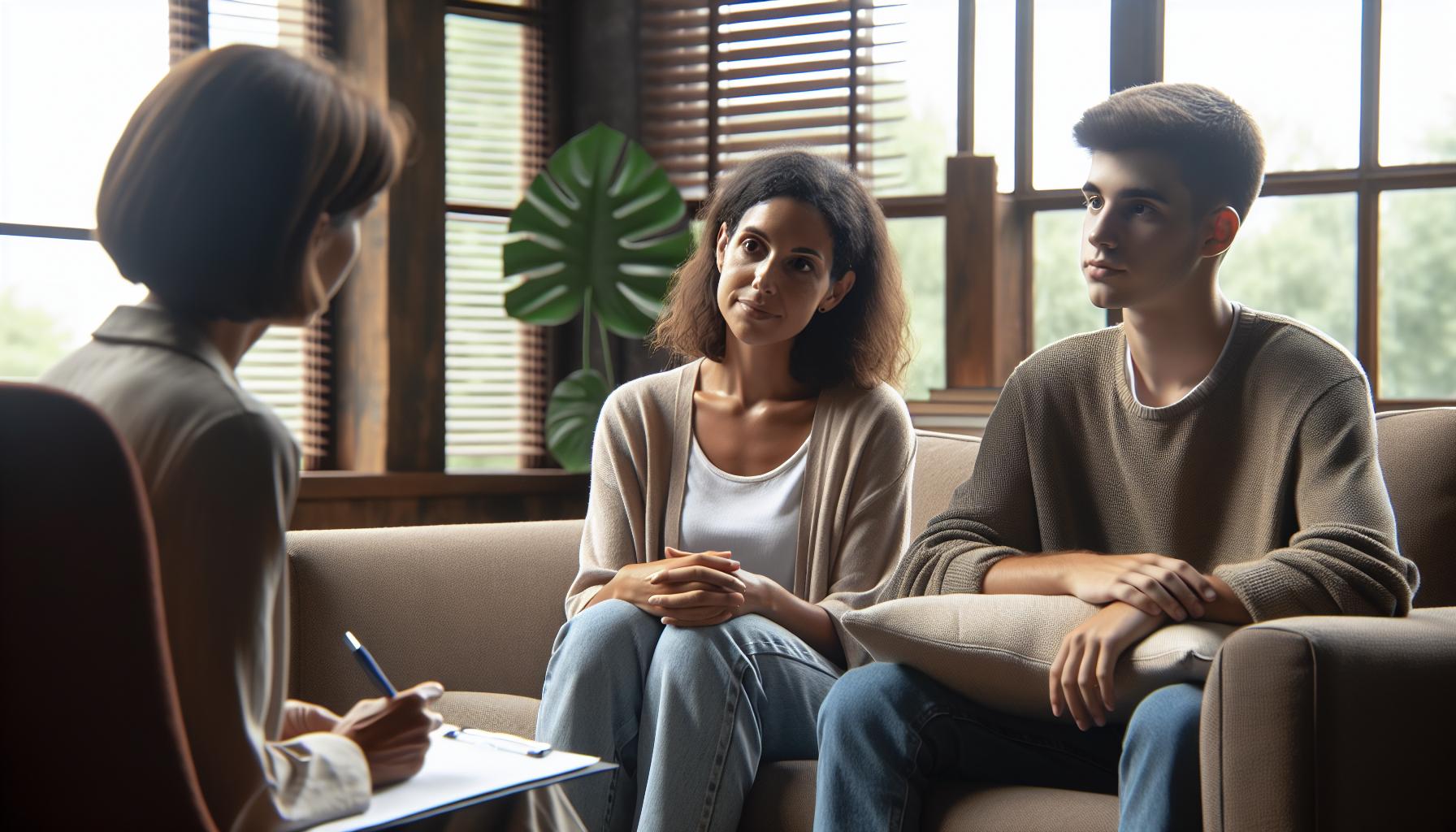Physical Address
304 North Cardinal St.
Dorchester Center, MA 02124
Physical Address
304 North Cardinal St.
Dorchester Center, MA 02124

When love feels more like a rollercoaster than a stroll in the park, it might be time to consider a relationship counseling center. These havens of hope can turn your emotional chaos into a harmonious duet. Picture this: skilled professionals ready to help couples navigate the twists and turns of romance, armed with tools and techniques that even the most stubborn hearts can appreciate.
Whether it’s communication breakdowns or the infamous “who left the toilet seat up” debate, relationship counselors are like relationship ninjas—swiftly tackling issues before they become full-blown crises. With a dash of humor and a sprinkle of empathy, they guide partners toward understanding and connection. So, if love’s got you feeling like you’re stuck in a sitcom, it’s time to call in the experts and rewrite your story together.
Relationship counseling centers specialize in helping couples address emotional challenges and improve communication. Professionals in these centers provide a safe and supportive environment for partners. Each session often focuses on exploring underlying issues and fostering trust.
Counselors utilize various therapeutic approaches tailored to individual couple needs. Techniques such as cognitive-behavioral therapy or emotion-focused therapy can promote constructive dialogue. They assist in developing effective communication strategies, enhancing understanding between partners.
Many couples attend these centers during difficult periods. Issues like infidelity, financial stress, or parenting disagreements can benefit from professional intervention. By addressing these concerns, couples learn healthier ways to resolve conflicts and strengthen their bonds.
Assessment tools and techniques frequently shape the counseling process. Counselors often evaluate relationship dynamics through questionnaires and discussions. These assessments help identify patterns and facilitate targeted interventions.
Practicing empathy and humor, counselors create an atmosphere conducive to open conversation. This approach helps partners feel comfortable sharing their thoughts and feelings. Mutual respect and understanding often emerge as key themes throughout the counseling process.
Relationship counseling centers offer a structured approach to enhancing partnerships. Through expert guidance, couples are encouraged to foster deeper connections and navigate challenges together. Seeking assistance from these centers can lead to lasting improvements in relationships.

Relationship counseling provides numerous advantages for couples facing challenges. Skilled counselors facilitate the process, allowing partners to rediscover connection and address underlying issues.
Effective communication lies at the heart of successful relationships. Couples learn to express feelings clearly, reducing misunderstandings. Counselors teach active listening techniques, which enhance empathy. When both partners articulate needs and concerns, they foster better dialogue. Learning to navigate difficult conversations builds a foundation for trust. With structured exercises, individuals practice sharing thoughts in a non-confrontational manner. As skills improve, relationships benefit from increased openness and reduced conflict.
Emotional intimacy strengthens bonds between partners. Therapy sessions create a safe space for sharing vulnerabilities. Partners explore feelings, deepening their understanding of one another. Counselors guide couples in recognizing and responding to emotional needs. As empathy grows, so does trust and support. Engaging in discussions about desires and fears cultivates closeness. With this focus, couples build a resilient connection that withstands challenges. Enhanced emotional ties lead to a more satisfying and lasting partnership.

Relationship counseling centers address various common issues that couples face. These challenges often require professional intervention for resolution.
Communication problems frequently lead to misunderstandings and frustration. Couples often struggle to articulate their thoughts and feelings clearly, resulting in confusion. A counselor assists partners in developing effective communication skills, promoting active listening and validation. Improved dialogue naturally fosters emotional intimacy. As partners learn to express themselves without fear, they cultivate a supportive environment for open conversations.
Conflict resolution represents another crucial area for couples in counseling. Disagreements can escalate quickly without proper tools to navigate them. Counselors guide partners in identifying the roots of their conflicts while teaching constructive methods to address disputes. Through role-playing exercises and guided discussions, couples learn to tackle issues collaboratively. This approach not only resolves immediate conflicts but also strengthens relationships over time.
Trust issues can erode the foundation of any relationship. Jealousy, past betrayals, or communication lapses often contribute to this challenge. Counselors focus on helping partners rebuild trust through honest conversations and transparency. Establishing boundaries and creating a safe space for vulnerability are essential steps in addressing trust concerns. As couples work through these issues, they foster a deeper connection, paving the way for a healthier and more secure partnership.
Selecting a suitable relationship counseling center involves considering multiple aspects to ensure effective support. Understanding these factors helps couples make informed choices.
Location matters significantly. A conveniently located center encourages regular attendance and participation. Evaluate the qualifications of counselors. Look for licensed professionals with specific training in relationship therapy. Assess the treatment approaches offered. Different counselors may utilize varied methodologies, such as cognitive-behavioral therapy or emotionally focused therapy. Determine the center’s reputation. Online reviews and testimonials provide insights into past client experiences. Availability of flexible scheduling is essential. Centers that offer various appointment times accommodate busy lifestyles, making access easier.
Ask about their experience with specific issues. Counselors familiar with challenges like infidelity or financial stress may offer tailored guidance. Inquire about their therapeutic approaches. Knowing a counselor’s methodology aids in choosing one that resonates with the couple’s preferences. Discuss the structure of sessions. Understanding what a typical session involves fosters transparency and sets expectations. Explore how they measure progress. Counselors who assess improvements provide couples with tangible benchmarks. Lastly, inquire about confidentiality policies. Ensuring privacy is critical for open communication during therapy sessions.
Seeking help from a relationship counseling center can be a transformative step for couples facing challenges. By engaging with skilled professionals, partners can cultivate stronger communication skills and deepen their emotional connections. The supportive environment fosters open dialogue and mutual respect, essential for navigating difficult conversations.
Choosing the right counseling center is crucial for effective support. Couples should consider factors like counselor qualifications and treatment approaches to ensure they receive the best possible care. With the right guidance, couples can turn obstacles into opportunities for growth, ultimately leading to a more satisfying and resilient partnership. Embracing this journey together can pave the way for a healthier and happier relationship.